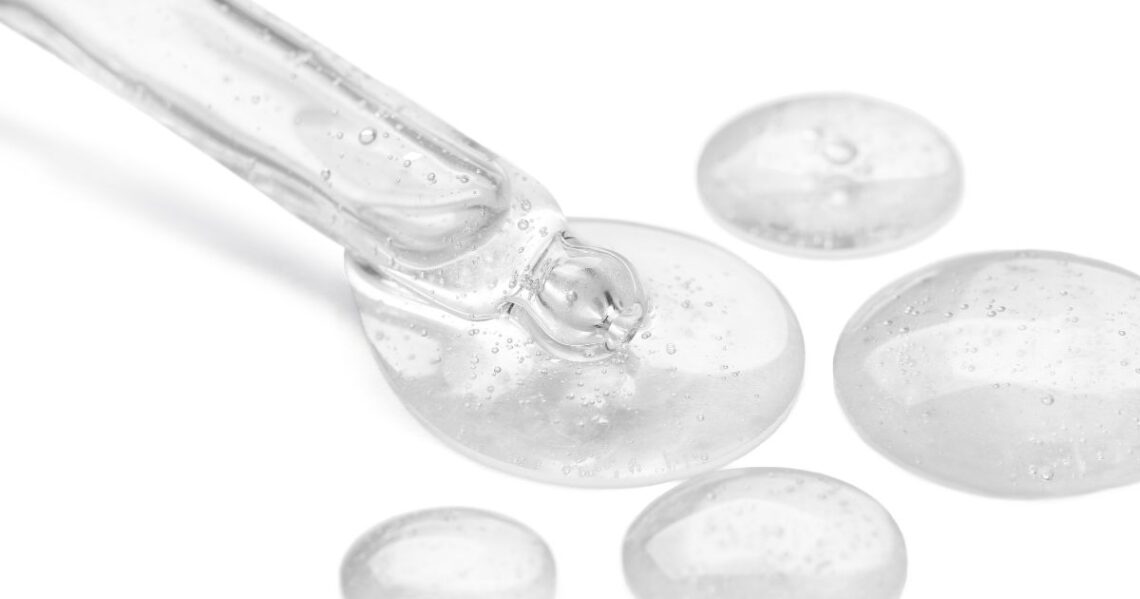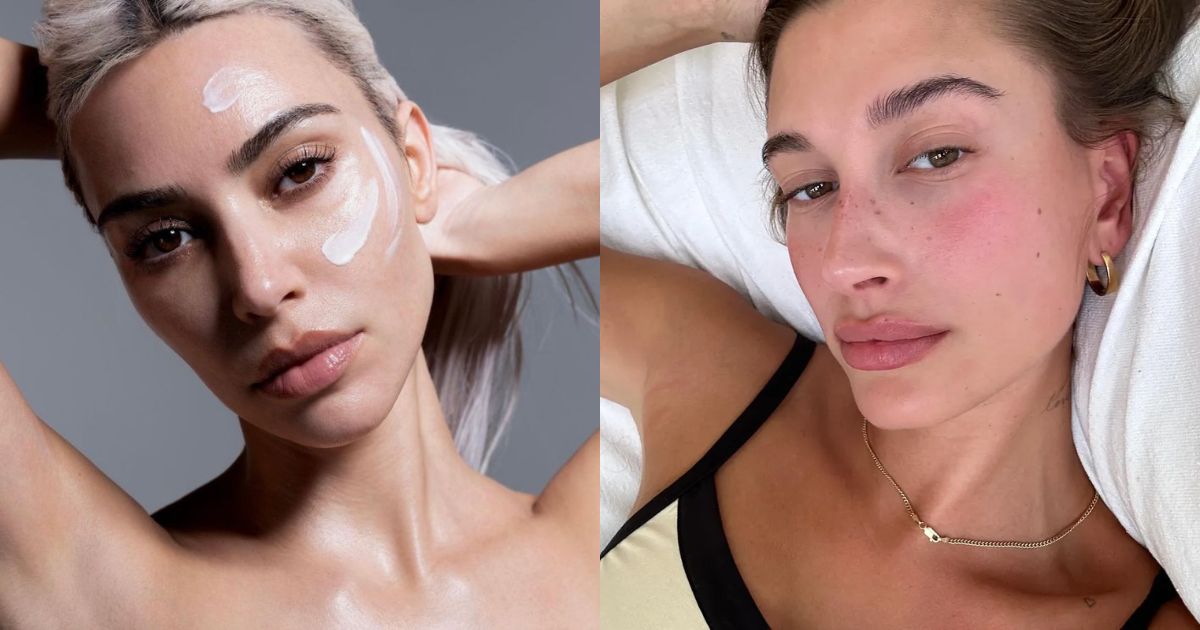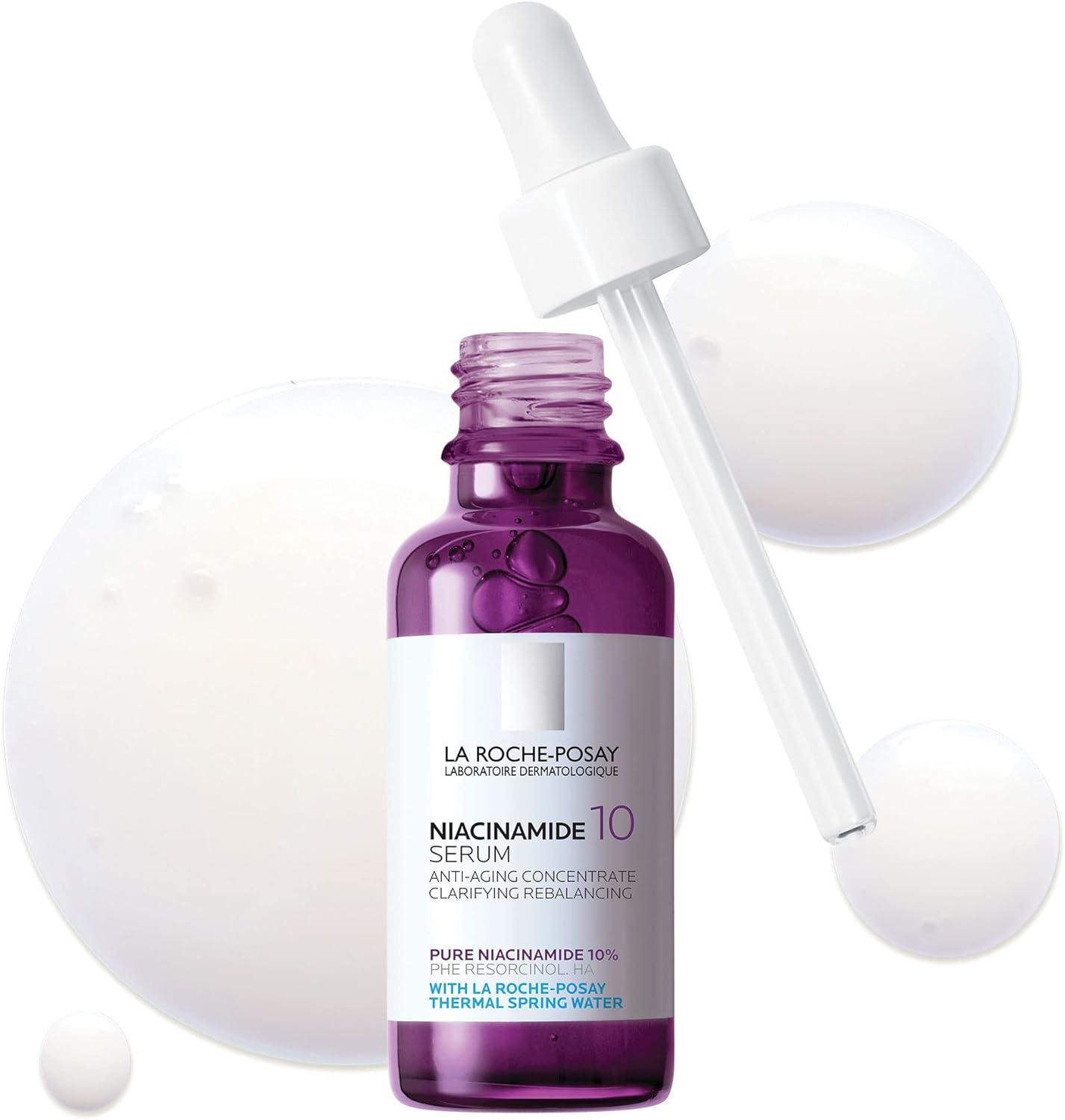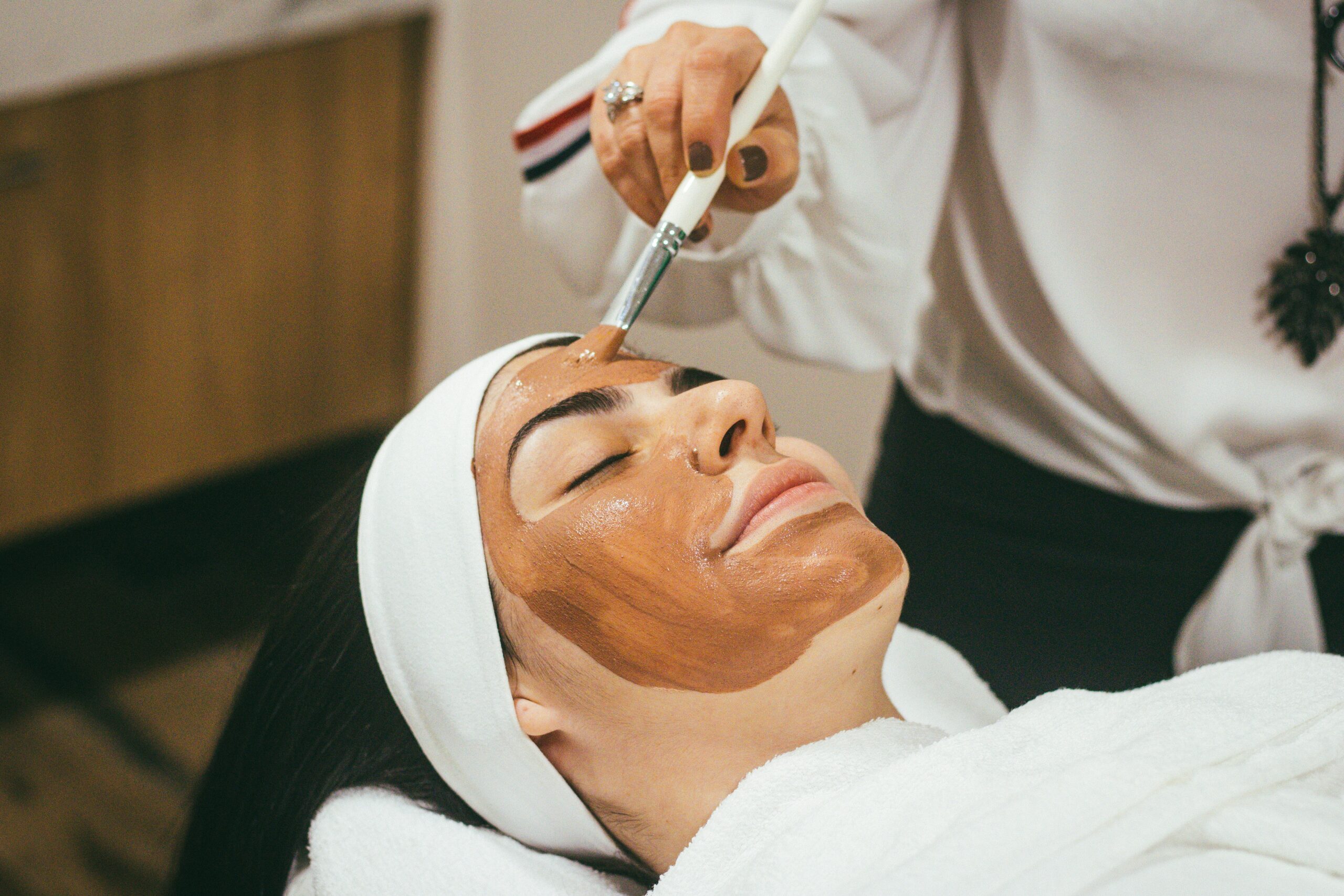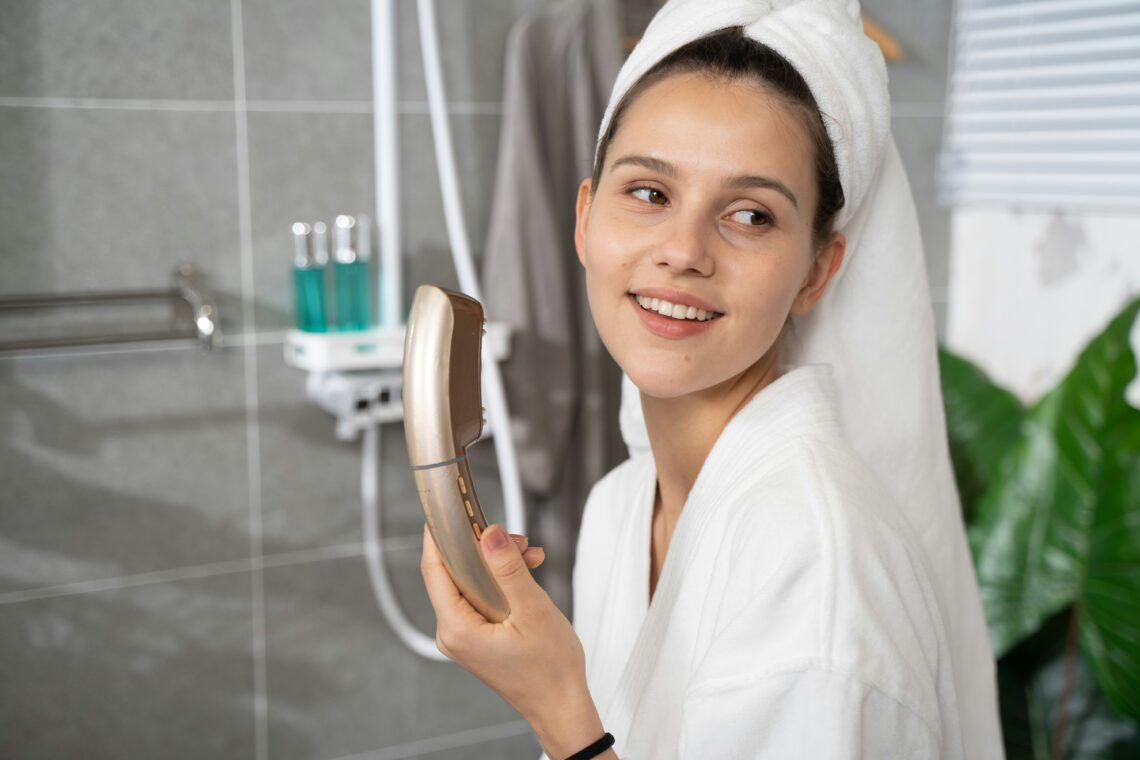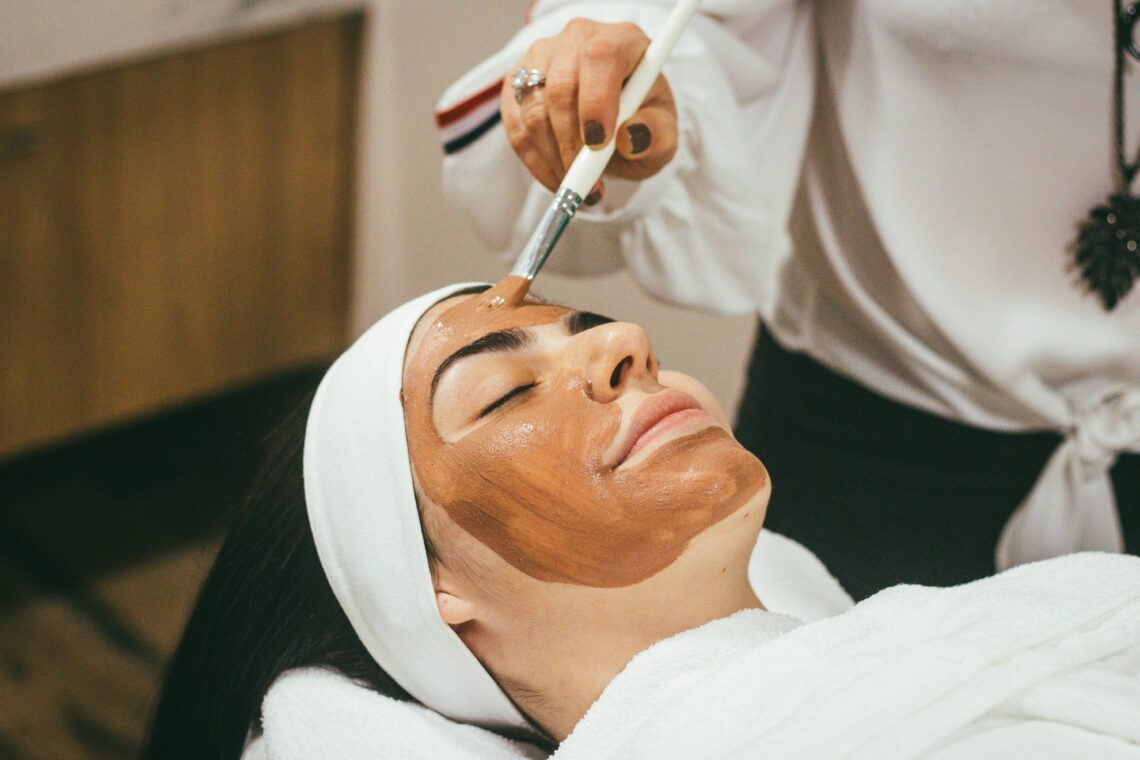When it comes to hydration, no ingredient is more talked about or trusted than Hyaluronic Acid. Hyaluronic Acid is widely used in skincare, but what exactly is it, how does it work, and which products are truly worth your money? In this guide, we’ll unpack everything you need to know.
What is Hyaluronic Acid?
Hyaluronic acid (HA) is a naturally occurring glycosaminoglycan found throughout the body—in the skin, joints, and eyes—renowned for its remarkable ability to retain moisture, holding up to 1,000 times its weight in water. In the skin, HA plays a crucial role as part of the extracellular matrix, supporting hydration, elasticity, and tissue repair.
How Hyaluronic Acid Works in Skincare?
Hyaluronic acid functions primarily as a humectant, attracting and retaining moisture to maintain skin hydration and firmness. Its unique molecular structure allows it to bind up to 1,000 times its weight in water, making it essential for maintaining skin volume and elasticity. In healthy skin, HA is a key component of the extracellular matrix, supporting the skin barrier and facilitating cellular communication.
According to the article “Hyaluronic Acid: A Key Molecule in Skin Aging” published in Dermato-Endocrinology, HA plays a central role in preserving skin moisture and elasticity. The research highlights that both intrinsic aging (natural, chronological) and extrinsic aging (primarily UV-induced) contribute to a significant decline in epidermal HA levels, leading to compromised hydration and reduced skin resilience.
Topically applied HA works within the superficial layers of the skin to enhance hydration and improve surface texture. In contrast, injectable forms—commonly used in dermal fillers—target deeper layers to restore volume and reduce the appearance of wrinkles. While both applications improve overall skin function, topical HA is best suited for daily hydration, whereas injectables offer structural support and anti-aging correction at a deeper level.
Who and How to Use Hyaluronic Acid in Skincare Effectively?
Hyaluronic acid is suitable for nearly all skin types, making it a versatile and widely loved ingredient. It’s especially beneficial for dry, dehydrated, or mature skin due to its exceptional ability to attract and retain moisture, helping to improve elasticity and smooth the appearance of fine lines. Even oily and acne-prone skin types can benefit from HA, as it delivers lightweight hydration without clogging pores or adding excess shine.
However, proper use is key. When applied incorrectly, such as on completely dry skin without a follow-up moisturizer, hyaluronic acid can draw moisture from deeper layers of the skin, potentially leading to dryness or irritation. This is particularly important for those with a compromised skin barrier, such as from over-exfoliation, eczema, or active irritation. In these cases, HA should be paired with barrier-repairing ingredients like ceramides, squalane, or rich moisturizers to prevent further dehydration or discomfort.
To get the most from hyaluronic acid, apply it to freshly cleansed, slightly damp skin. This allows the molecule to bind water to the skin’s surface more effectively. Always follow with a moisturizer—or an occlusive product like a cream or facial oil—to lock in hydration. Skipping this step may reduce HA’s benefits and even contribute to moisture loss in dry environments.
Hyaluronic acid is gentle enough for daily use, both morning and night. When used consistently and correctly, it can significantly improve skin hydration, texture, and suppleness over time. For best results, integrate it into a well-rounded routine, especially when using actives like retinol or exfoliating acids, to help maintain balance and protect your skin barrier.
Ingredient Pairings: What Works Well With Hyaluronic Acid?
As you can see while you shop, Hyaluronic acid is a team player in skincare and pairs well with a wide range of ingredients, making it easy to incorporate into nearly any routine.
The Best Pairings
- Vitamin C: Combining HA with Vitamin C boosts antioxidant protection while keeping skin hydrated and bright. Use HA after applying your Vitamin C serum to lock in moisture and support collagen production.
- Niacinamide: This calming, barrier-repairing ingredient works synergistically with HA to improve skin texture, reduce inflammation, and strengthen the skin barrier.
- Ceramides & Fatty Acids: These lipid-rich ingredients are perfect partners for HA. While HA draws moisture in, ceramides help seal it in and reinforce the skin’s protective barrier.
Use With Caution:
- Exfoliating Acids (AHAs/BHAs): HA can be used alongside acids like glycolic or salicylic acid, but only if layered correctly. Apply HA after exfoliation to help soothe and rehydrate the skin. Using them together without proper buffering may increase the risk of irritation.
- Retinol: HA complements retinol well by offsetting dryness and irritation. Apply HA before or after retinol, depending on your product’s formulation and tolerance level.
In short, hyaluronic acid pretty much fits seamlessly into most routines, but strategic layering can make a major difference in how your skin responds.
Product Comparison: Top Hyaluronic Acid Products Reviewed
From viral TikTok serums to dermatologist-approved staples, we’re diving deep into why Hyaluronic Acid belongs in your routine—and which products deliver.
1. The Ordinary: Hyaluronic Acid 2% + B5
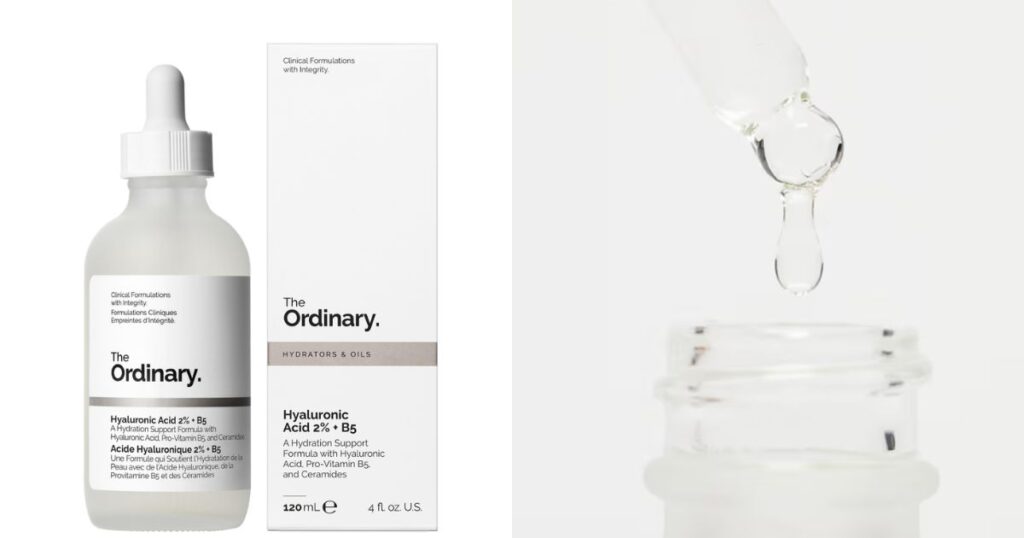
The Ordinary Hyaluronic Acid 2% + B5 is a cult-favorite serum that combines multiple molecular weights of HA with Vitamin B5 to deeply hydrate and soothe the skin. Loved for its affordability and simplicity, it’s a go-to for all skin types—but be sure to follow with a moisturizer to prevent pilling.
- Price: £8–£17
- Highlights: Combines low, medium & high molecular weights + Vitamin B5 for soothing hydration.
- Ideal For: All skin types, especially budget-focused routines.
- Pros: Affordable, clean formula, widely recommended.
- Cons: May pill if not layered properly.
- Rating: ★★★★☆
2. Boots: Ingredients Hyaluronic Acid Serum
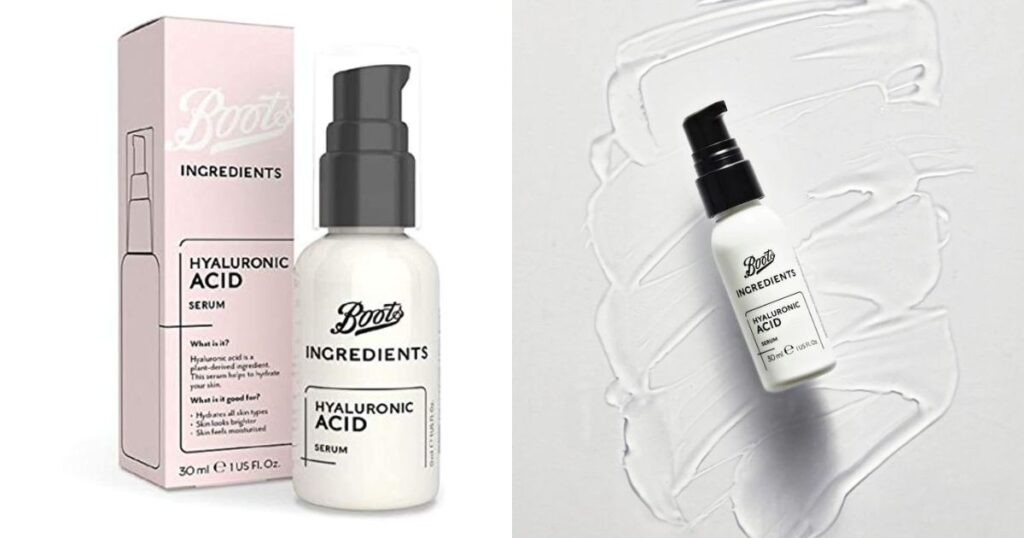
Boots Ingredients Hyaluronic Acid Serum became a viral hit on TikTok for its ultra-low price and promise of “glass skin” on a budget. While it’s great for beginners, its basic formula and mixed reviews make it more of a starter option than a long-term staple.
- Price: £3.33
- Highlights: Low-cost, TikTok-popular pick for “glass skin” routines.
- Ideal For: Beginners or those experimenting with HA on a budget.
- Pros: Super cheap, accessible.
- Cons: Average reviews, less clinical backing.
- Rating: ★★★☆☆
3. CeraVe: Hydrating Hyaluronic Acid Serum
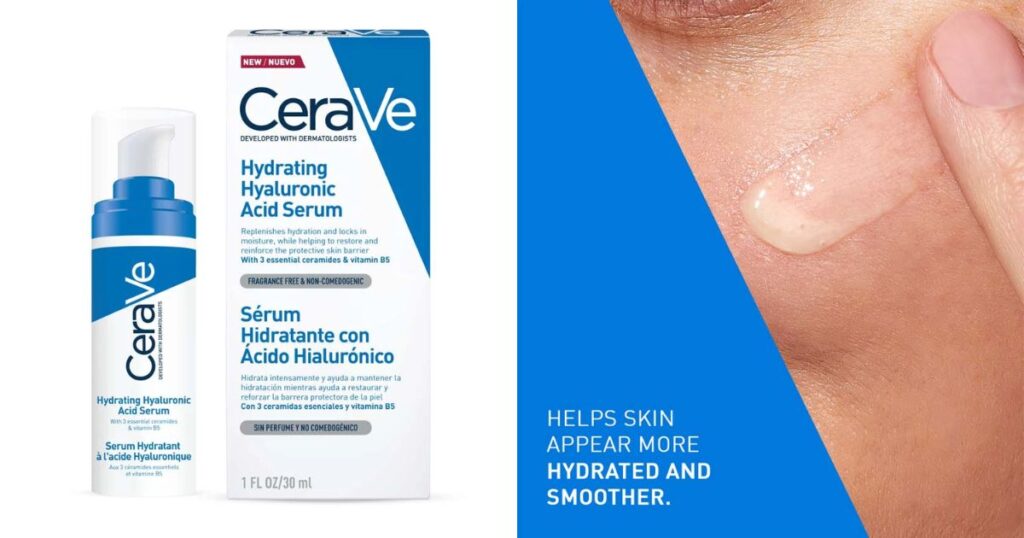
Formulated with dermatologists, this serum blends hyaluronic acid with essential ceramides to deeply hydrate while restoring the skin barrier. It’s a top pick for dry or sensitive skin types, though it may feel slightly tacky on oilier complexions.
- Price: £16.60
- Highlights: Dermatologist-formulated with hyaluronic acid + ceramides; non-comedogenic.
- Ideal For: Sensitive, dry, and eczema-prone skin.
- Pros: Barrier-friendly, highly rated (4.7★), developed with dermatologists.
- Cons: May feel slightly sticky on oily skin.
- Rating: ★★★★☆
4. Dr Barbara Sturm: Hyaluronic Serum
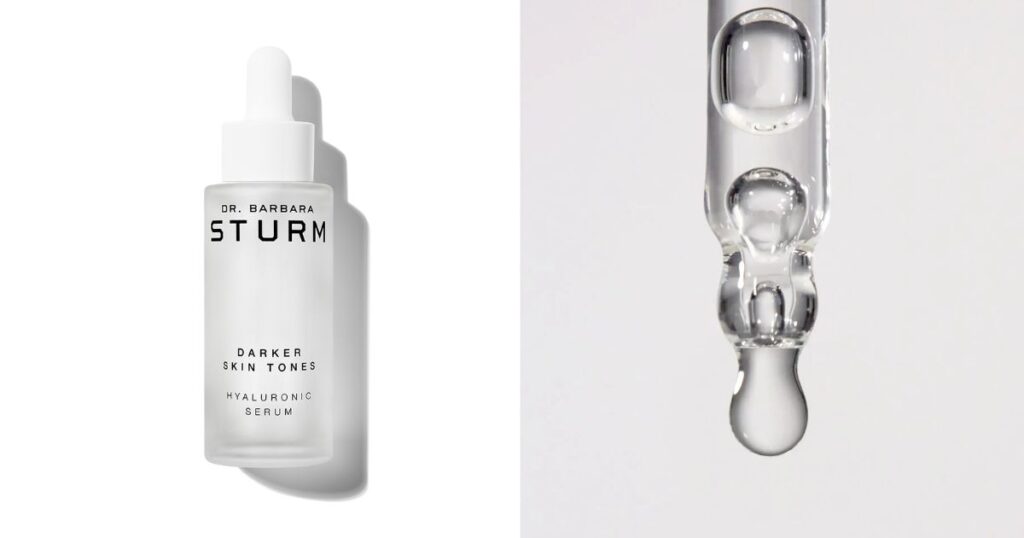
This luxury serum combines high- and low-weight hyaluronic acid molecules for deep, long-lasting hydration that visibly plumps and smooths the skin. Backed by celebrity fans and dermatologists alike, it delivers premium results if you’re willing to splurge.
- Price: £110
- Highlights: High-potency molecule mix; celebrity dermatologist endorsement.
- Ideal For: Mature, dehydrated skin seeking intense hydration.
- Pros: Premium formulation, potent hydration.
- Cons: Very expensive.
- Rating: ★★★★☆
5. La Roche‑Posay: Hyalu B5 Hyaluronic Acid Serum
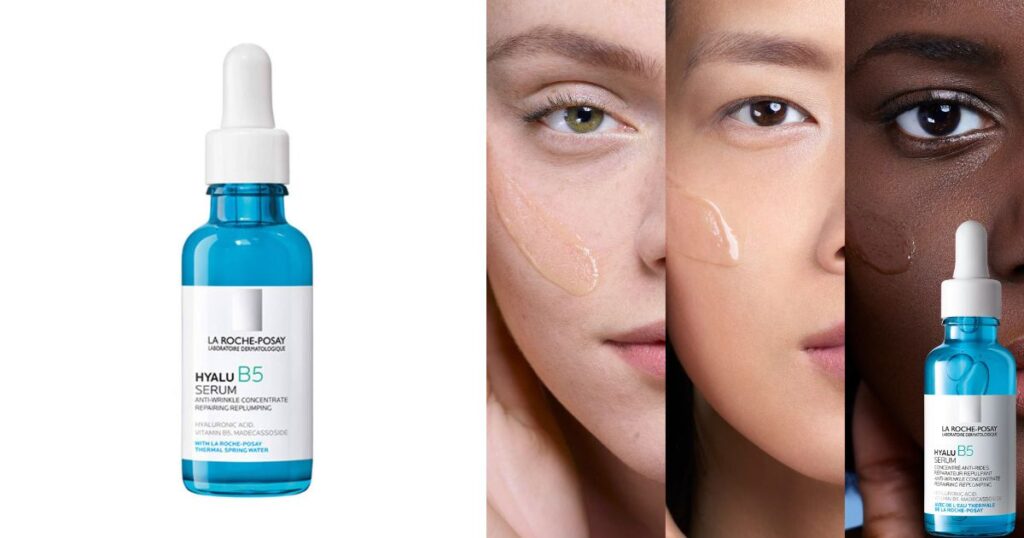
La Roche‑Posay Hyalu B5 Serum pairs two types of pure hyaluronic acid with vitamin B5 and soothing madecassoside to deeply hydrate, plump fine lines, and support the skin’s natural barrier. Users rave that within days their skin feels “hydrated, softer, suppler,” thanks to its lightweight, fast-absorbing texture that leaves no greasiness behind.
- Price: £38
- Highlights: Combines two types of hyaluronic acid with Vitamin B5 and madecassoside for deep, long-lasting hydration and skin barrier repair.
- Ideal For: Dehydrated, sensitive, or irritated skin in need of soothing and plumping.
- Pros: Lightweight gel texture, absorbs quickly, backed by dermatologists.
- Cons: Higher price point compared to basic formulas.
- Rating: ★★★★☆
Luxury Skincare Celebs Are Obsessed With — Kim K To
Since Hailey Bieber’s Rhode skincare line launched in the UK, celebrity skincare routines have skyrocketed into must-follow trends. One’s…
Stop Skin from Aging: Why Vitamin C and SPF Are
Aging a natural process as well as a fact of life — but premature skin aging doesn’t have to be. Wrinkles, fine…
Healthy & Glowing Skin: Science-Based Skincare Routines
What Does “Healthy and Glowing Skin” Really Mean? Some people may think the healthy and glowing skin is just about a…
What is Niacinamide and Its Benefits, the new TikTok Holy
In the ever-growing industry of skincare, TikTok has become a highly influential social media channel for discovering trending products and…
Affordable Derm-Recommended Skincare for Dry and Sensitive Skin
Does affordable skincare actually work? Yes – if you choose the right skincare products that are suitable for your skin type….

